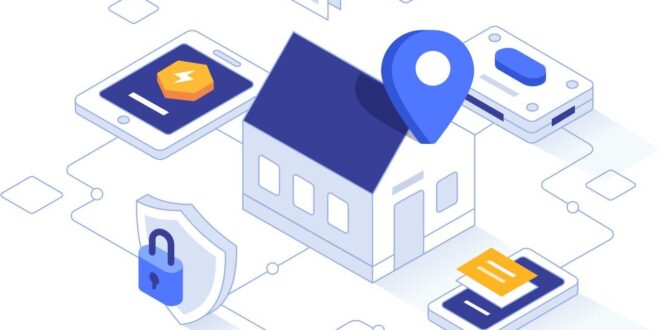Residential proxies are a term that must first be defined before they can be explained. A proxy server, according to Merriam-Webster, is “a computer system that allows the transmission of data between users on a network.” Greater security, such as passing requests across a firewall, is the primary justification for using a proxy server.
Typically, it serves as a point of entry into bigger networks from your computer or local network (e.g. the internet itself). It can be utilized for a variety of things, like enhancing security and performance on the one hand and keeping an eye on your online activities on the other one.
Today, besides the residential proxy description itself, we’re going to provide you with all the key information connected with the proxy network you need to know: what their benefits are, what types of residential proxies are, what the main difference between the data center and residential proxies is, as well as which proxy network better is, etc. So don’t waste our time and get to the point together!
Residential Proxy Benefits

You’ll need to occasionally change your IP address if you want to “trick” the browser and servers into giving you the information you need even when your true IP is being banned.
A residential proxy network is required for this. Residential proxy networks of superior quality will:
- Improve the reliability of your web browsing,
- Reduce your risk of being delisted from your target website,
- Enhance your security, privacy, and safety,
- Being more trustworthy than a data center proxy.
Types of Residential Proxy

Residential proxies come in a variety of forms:
- You can browse the internet using someone else’s IP by using backconnect proxies. This is made possible by your Internet service provider (ISP), which serves as a bridge between you and personal residential proxies located domestically or abroad.
- Your provider may sell you proxies, which they will use to connect you to safe and dependable addresses. The ability to switch IP addresses every five to ten minutes is one of home backconnect proxies’ main benefits.
- Dedicated proxies will improve your browsing experience significantly, in contrast to free proxies, which are typically neither fast nor dependable. With dedicated residential proxies, you can choose from several fast, private residential proxies and move to a different one if your current address is blacklisted.
Residential vs. Data Center Proxy Network: What’s the Difference, and Which Proxy is Better?

It’s a well-known fact that internet service providers utilize a variety of tools to monitor our online activity and are fully aware of our relationships with and activities on our favorite websites.
Our residential IP is linked to every trace we leave, making it simple for security agencies or even a skilled hacker to find out about all of our transactions.
Currently, you must hide your real address if you want to remain anonymous.
Data center proxies can successfully hide your real address at this point, erasing it from view and preventing tracking software from identifying you. The fact that this kind of proxy is typically disapproved of should be kept in mind.
Data center proxies have been extensively utilized for criminal actions by hackers, specifically because they are better at masking your identity. Because of this, servers are now on the lookout for these proxies, increasing the likelihood that anyone using them will be blacklisted.
The IP ranges of data centers typically start at the same few integers, making it easier to block the entire range if your target website makes a decision to do so. Additionally, even if you choose to get a data center proxy, it only acts as a barrier between you and those overly curious about your online activities, and you will sooner or later get blocked.
In light of this, even if you manage to get one, you’ll still require a legitimate residential proxy to maintain your anonymity and complete your business while avoiding detection. You see, because residential proxies’ IP range is global in scope, it’s impossible to categorize it into a single range.
Conclusion
According to your specific requirements, you can employ dedicated residential proxies or residential back-connect proxies. With all of this in mind, it should be clear that residential proxies are a secure, legitimate, and trustworthy solution to facilitate easy and effective web browsing.
If you’re looking for a clean proxy, we recommend you make a choice on the following website – Proxy-Store.com. This is a reliable place that offers its customers a wide range of different proxies, including residential ones. So visit it next time you’ll be searching for a solution, and you’ll definitely never regret it. Good luck, and thank you for reading!
 Hi Boox Popular Magazine 2024
Hi Boox Popular Magazine 2024



